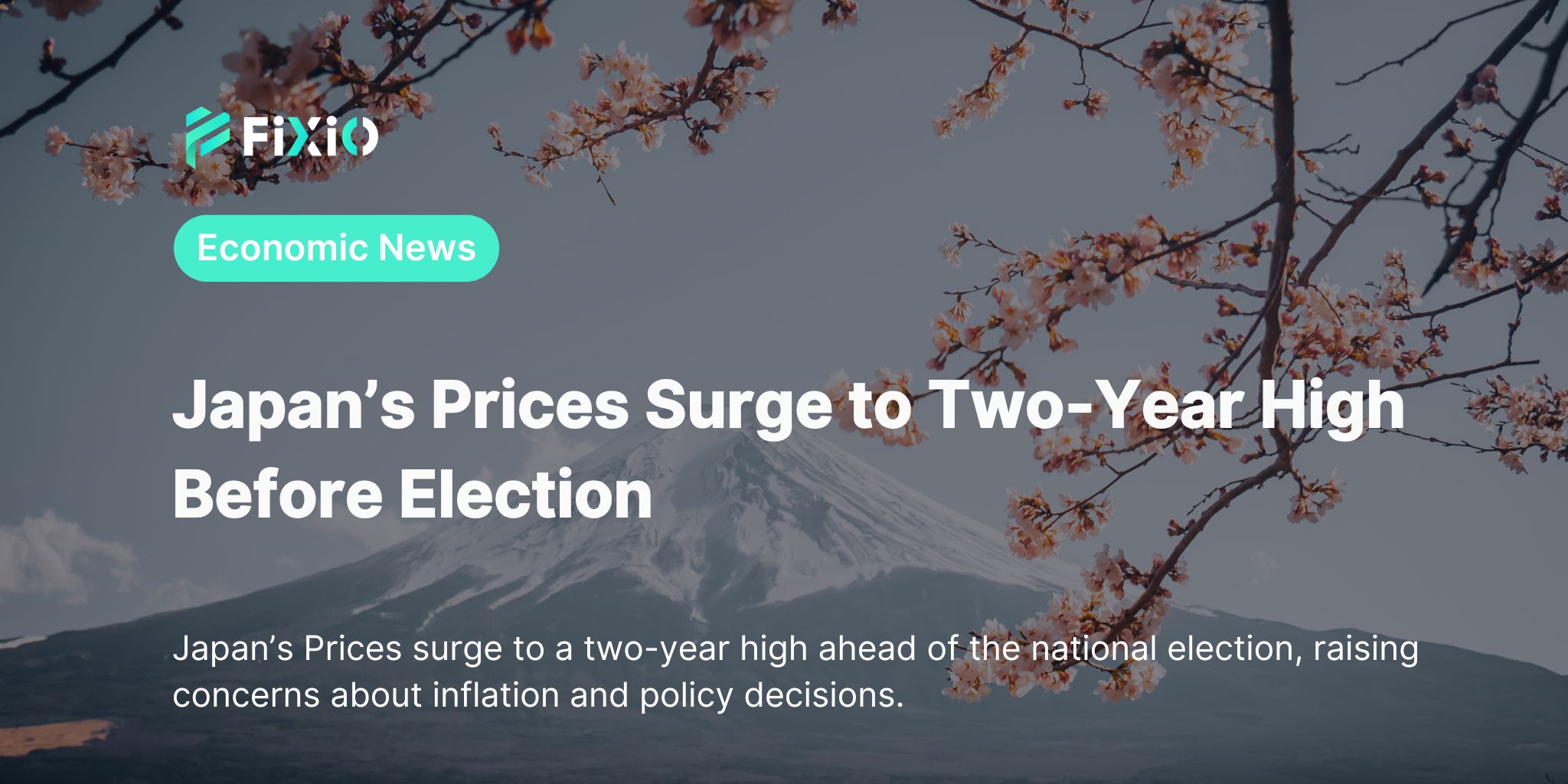
Japan’s Prices are rising at their fastest rate in two years, raising concerns for households and putting pressure on policymakers ahead of the national election. With this unexpected surge, many people are rethinking their budgets and questioning how Japan’s economy will cope with prolonged inflation.
Several factors have combined to push Japan’s Prices higher than expected. The most recent data shows the consumer price index (CPI) for Tokyo jumped 3.7% year-on-year in May 2025. This is the highest increase since early 2023, and it is being felt in everyday expenses—from supermarket trips to utility bills. One major driver is the sharp rise in rice prices, which have doubled compared to last year. Poor harvests due to extreme weather and a severe earthquake in 2024 have caused a shortage, forcing the government to release emergency rice reserves. At the same time, higher import costs caused by a weaker yen have driven up the prices of many basic goods, including energy and imported food products.
For many families, Japan’s Prices are forcing tough decisions. People are buying less, cutting back on non-essentials, and some are turning to cheaper brands. According to a recent survey, over half of Japanese consumers report feeling more financial stress now than at any point in the last decade. Utility bills, groceries, and even public transport fares have all crept up. In response, the government has introduced direct cash subsidies of 20,000 yen per person to help offset living costs. However, critics argue that such measures are only temporary solutions and do not address the root causes of inflation.
With the national election approaching, Japan’s Prices have become a central political issue. The current administration faces criticism for failing to control costs, especially for everyday essentials. The public is also divided over whether to reduce the consumption tax, which remains at 10% even for many food items. Debates in parliament have grown heated, with opposition parties calling for more permanent solutions. Some experts believe that prolonged inflation could change voting behavior, making economic management the top priority for many voters. Political analysts are watching closely to see whether the government’s relief measures are enough to restore public confidence ahead of the election.
The Bank of Japan (BOJ) has taken a cautious approach, maintaining short-term interest rates at 0.5% and signaling it could tighten policy further if inflation continues. The central bank is wary of acting too slowly, especially if higher prices become entrenched and lead to a “wage-price spiral,” where rising wages and prices reinforce each other. This phenomenon has happened in other economies and can make inflation harder to control. Recent BOJ statements have hinted at a willingness to raise rates again by the end of 2025 if inflation does not subside. Many investors and economists are now focused on the BOJ’s next moves, as they could shape the direction of Japan’s financial markets for months to come.
While Japan’s Prices are a challenge for many, there are also opportunities. Businesses able to adapt—such as local food producers or companies offering budget-friendly products—may benefit from shifting consumer habits. However, the risks are clear: if inflation remains high, it could slow down economic growth, limit consumer spending, and increase uncertainty for both families and businesses. On a global scale, Japan’s experience is a reminder that no advanced economy is immune to inflation, especially when faced with shocks like natural disasters or supply chain disruptions. Policymakers must remain flexible and ready to respond quickly as conditions change.
If you’re new to economic news, some terms may sound technical. For example, the consumer price index (CPI) measures average price changes for goods and services. The consumption tax is Japan’s version of a value-added tax, applied at the point of sale. And the wage-price spiral refers to a situation where higher wages and prices feed off each other, potentially worsening inflation (see here).
Japan’s Prices have reached a critical point, affecting everything from groceries to government policy. As the nation heads into its election, inflation is set to remain the central issue. Both households and businesses must stay informed and adaptable as the economic landscape evolves. Policymakers will need to act decisively to protect growth while keeping living costs manageable for all. Stay informed with the latest Forex trading news and analysis. Visit our website now at: https://fixiomarkets.com/en/prex-blogs
Japan’s Prices surge to a two-year high ahead of the national election, raising concerns about inflation and policy decisions.
Superior trade execution & trading conditions with the NDD method.

The online FX industry provides a platform for investors worldwide to engage in the buying and selling.

Subscribe to our daily newsletter and get the best forex trading information and markets status updates
Trade within minutes!
Comment (0)